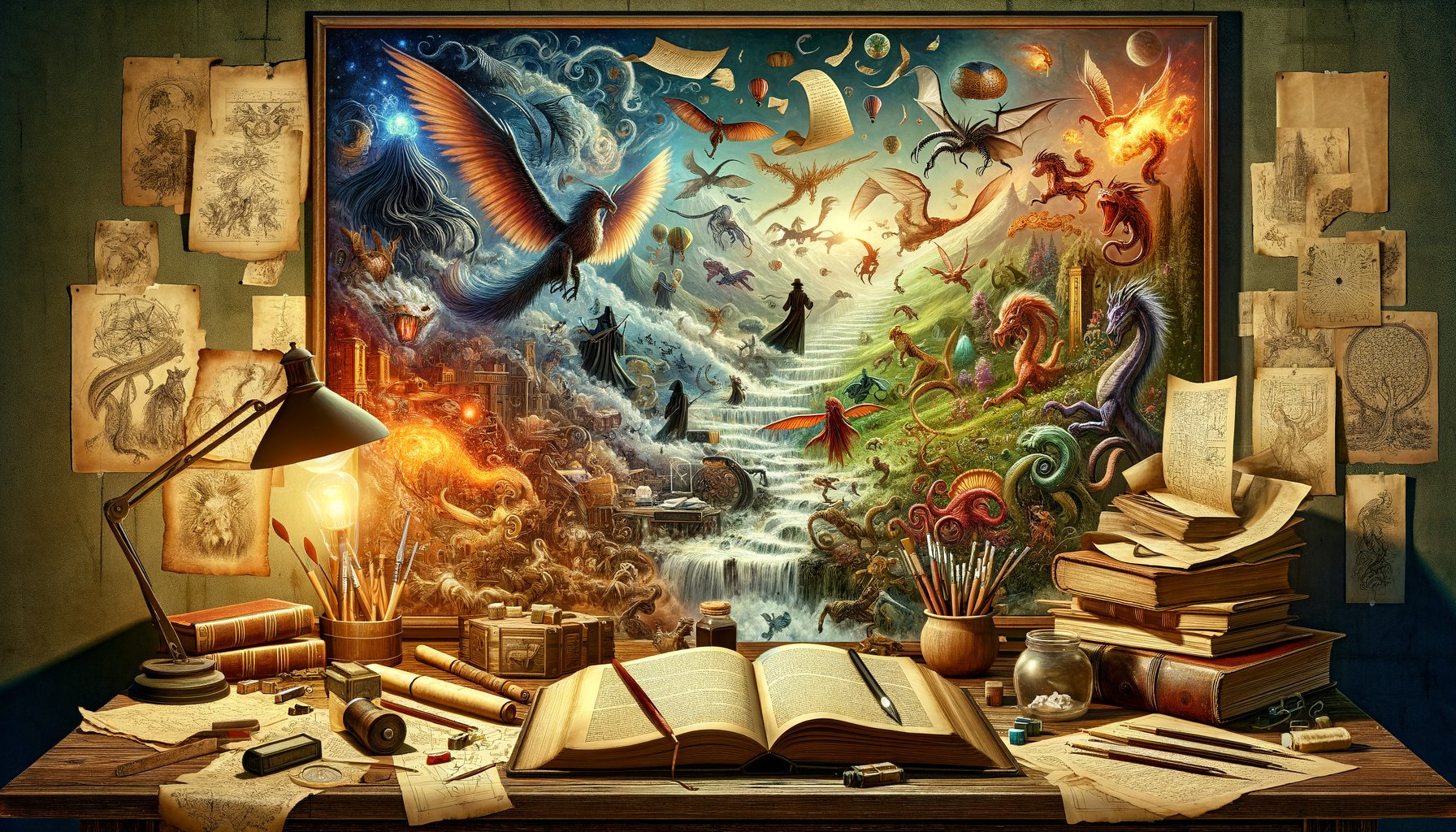Physical Address
304 North Cardinal St.
Dorchester Center, MA 02124
Physical Address
304 North Cardinal St.
Dorchester Center, MA 02124

Welcome, dear reader, to the magical realm of fantasy novels! A place where dragons fly high in the sky, fairies dance in enchanted forests, and heroes embark on epic quests. But wait… how do these worlds come into existence? The answer is through the intricate art of world-building. So grab your quill (or keyboard), and let’s dive headfirst into this fantastical journey.
World-building is like constructing an architectural masterpiece. You can’t just slap together a couple of bricks and expect a cathedral to magically appear. It requires careful planning, creativity, and attention to detail. It’s about creating not just physical landscapes but cultures, societies, histories, and even languages that feel as real as our own.
Let’s start with geography – the physical backbone of your world. Whether it’s sprawling cities or vast wildernesses, every location should serve a purpose in your narrative. Remember J.R.R Tolkien’s Middle Earth or George R.R Martin’s Westeros? These are not mere places but characters themselves that envelop readers into their grasp.
When designing your geography, consider elements like climate patterns, topographical features (mountains, rivers), local flora and fauna etc. And don’t forget to map it out! Nothing brings a world to life better than a good ol’ fashioned map.
North
^
|
WE
|
v
South
This might look like something scribbled by a toddler now but add some mountains here, a river there and voila – you have a world taking shape!
Next comes the people who inhabit your world. What are their cultures like? Do they worship gods, spirits, or perhaps the stars in the sky? Are they peaceful farmers or fierce warriors? Maybe both?
The key here is to make your societies feel lived-in. This means developing systems of governance, economy, religion and social norms. It’s also important to consider how different cultures interact with each other – are they friendly neighbours or sworn enemies?
A world without history is like a book without words. It’s the events of the past that shape societies and characters in the present. So spend some time crafting your world’s history. Was there an ancient war that still impacts current politics? A cataclysmic event that changed the landscape forever?
Also remember – history is often written by victors and can be subjective. This can add layers of complexity to your narrative as characters discover hidden truths about their world.
If you’re feeling particularly adventurous (or masochistic), you could even invent languages for your fantasy world! Think Elvish from Lord of The Rings or Dothraki from Game of Thrones.
Inventing a language can be tricky business but it adds depth to your world-building efforts. However, if this seems too daunting, don’t worry! You can always use different dialects or accents to distinguish between various groups within your story.
This is where things get really fun! Fantasy elements are what set these novels apart from other genres. Whether it’s magical artifacts, mythical creatures or supernatural abilities, these elements add a touch of wonder and excitement to your narrative.
But remember – even magic needs rules. Without them, you risk creating a world where anything can happen, which can kill tension and make conflicts feel contrived.
Now, here comes the tricky part – balance. While it’s important to create a rich and detailed world, you don’t want to overwhelm your readers with information. Remember that world-building serves the story, not the other way around.
A well-built world is like a beautiful painting in the background while the characters and plot are front and centre. If your readers are too busy trying to remember the 27th king of some forgotten dynasty instead of what your protagonist is doing – you might have overdone it!
World-building in fantasy novels is an art form that requires patience, creativity and a dash of madness! It’s about crafting an immersive universe that captivates readers and breathes life into your story.
So dear authors, as you embark on this exciting journey of creation, remember – every river you draw on your map, every culture you create and every piece of history you write is another brick in your fantastical cathedral. Happy building!